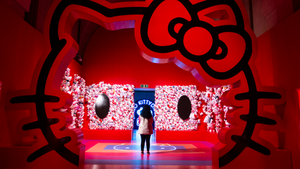If you measure the sector solely by License! Global's Top 125 Global Licensors, the exclusive annual compilation and retail sales ranking of the world's largest licensed brands, non-profit organizations account for
April 6, 2018
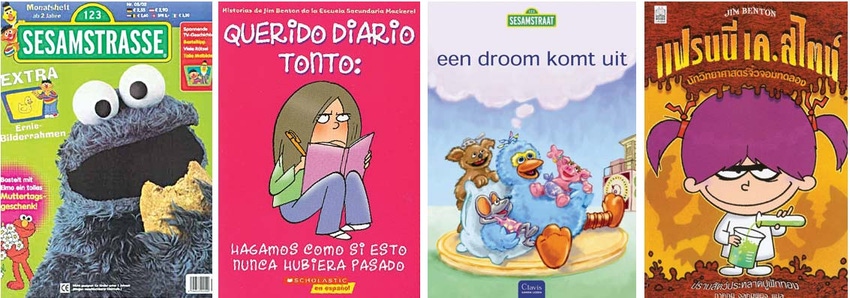
If you measure the sector solely by License! Global's Top 125 Global Licensors, the exclusive annual compilation and retail sales ranking of the world's largest licensed brands, non-profit organizations account for more than $2 billion in licensed merchandise sales in 2010. 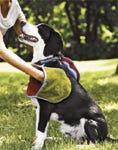
For non-profit organizations, the benefit of a robust licensing program is often two-fold. Taken at face value, merchandise sales bolster parent organizations and its bottom line. But on the back end, licensing programs are instrumental in building brand awareness and creating trust in the marketplace, a factor that helps organizations succeed in the long run and stay top of mind.
Several non-profit organizations made the Top 125 Global Licensors report, including Sesame Workshop (No. 30, $1.5 billion), National Geographic (No. 75, $250 million), the National Trust for Historic Preservation (No. 81, $209 million), V&A Enterprises (No. 103, $117 million) and the ASPCA (No. 104, $115 million).
For established programs such as that of the ASPCA, the licensing initiatives in place are boons and are growing in importance to the organization as a whole. 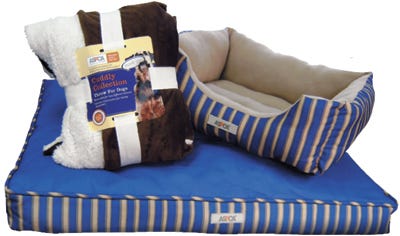
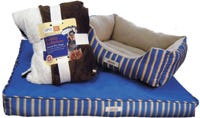
"The licensing dollars are growing in significance to the organization and continually having impact," says Elysia Howard, vice president of marketing and licensing for the ASPCA (The American Society for the Prevention of Cruelty to Animals), which advocates animal welfare.
While funds necessary to operate the organization come from multiple sources including traditional fundraising means, Howard asserts that licensing is increasingly taking a more active role in impacting the bottom line.
"Licensing programs are moving up the ladder to bring the money to the organization to do its work," she says. "And I can't stress enough the awareness that the brand is bringing to the organization." 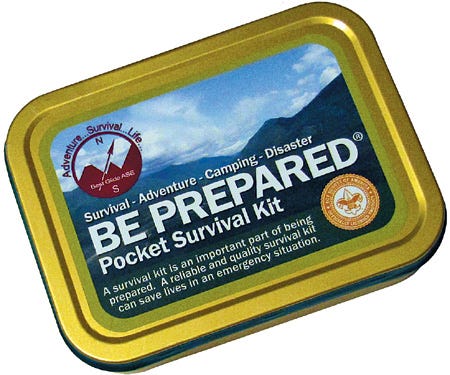
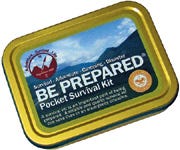
Originally founded in 1866, the ASPCA, which launched its licensing initiatives in 2006, has several programs currently in place including comprehensive programs at retailers such as Walmart, Petco and Ross Dress for Less stores for categories like pet accessories (crates, kennels, collars, pet beds, pet toys and travel safety gear), jewelry for pets and people and stationery under the ASPCA Collection umbrella; financial products (health insurance and Bank of America branded credit cards); and will soon launch its ASPCA Kids brand at this month's Licensing International Expo, June 14-16.
"We have some great and solid momentum with the ASPCA Collection and great momentum with the health insurance and affinity cards, but we will look towards kids the remainder of the year," says Howard.
Kids' merchandise will reach across several categories and include costumes for pets and children, craft kits and more. The program will also continue to focus on the human/pet experience. 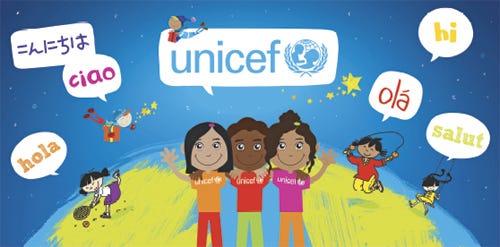

The ASPCA grew licensed merchandise sales in 2010 by more than $15 million. And with increases in sales comes an increase in brand recognition and consumer confidence.
According to the Cone Cause Evolution Study released in September 2010, 85 percent of Americans have a more positive image of a product or company when it supports a cause they care about, and 80 percent are likely to switch brands (when similar in price and quantity) to one that supports a cause.
"We're seeing an evolution in how consumers relate to causes," says Michelle Alfendari, president and chief executive officer of MODA Licensing. "I think people are looking to buy something with a real life 'feel good' factor. And when a retailer gets involved with a non-profit, it actually compels the consumer to be involved and spend their dollars there." 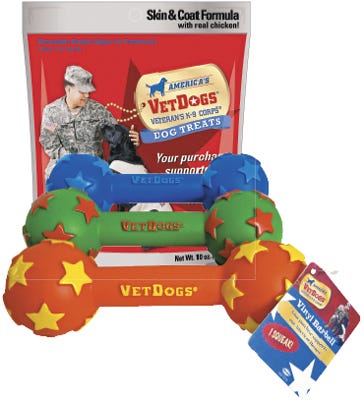
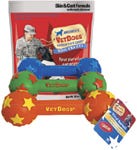
MODA serves as agent for multiple non-profit organizations including America's VetDogs, the National Trust for Historic Preservation and UNICEF.
"UNICEF is an incredible brand and it is the only truly global humanitarian organization for children in 193 countries worldwide," says Sharon Summer, senior vice president of business development for MODA. "They are seen as socially responsible, trust worthy, progressive and were started by the United Nations more than 64 years ago."
For UNICEF, MODA is still finalizing complete licensing programs that will focus on children's categories including apparel, toys, educational products, eyewear and juvenile products, all with a multicultural influence and global appeal.
For America's VetDogs, which raises, trains and matches service dogs to wounded American soldiers at no charge, partners are actively in place and include Vo-Toys (dog toys), launched just this year, and Bil-Jac (dog food and treats), launched in 2010 at Petco's nationally. MODA is pursuing other category extensions including dog accessories such as beds, leashes and the like. 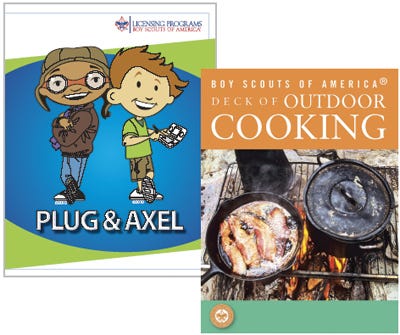

"We are very proud of the America's VetDogs program," says Alfendari. "I think in today's world, the consumer is really relating to this organization. It's the only product out in the market that is high quality, cost competitive and that does something truly great for your dog and Americans."
Other tried-and-true licensing programs include that for the perennial Boy Scouts of America.
The Boy Scouts have more than 150 licensees and several ongoing programs in place across multiple categories including publishing, toys, food and beverage, first aid, accessories and camping equipment. Recently, the Boy Scouts signed DK Publishing for a branded cooking guide and is set to release a collector's book in 2012. Lionel has signed on to produce Boy Scouts branded train sets, and Revell will release activity kits.
The Boy Scouts of America are also extending into character-related launches with the introduction last year of Plug and Axel, who embrace technology, innovation and eco-friendly living all through the lens of the Boy Scouts' Scout Oath and Scout Law.
According to Greg Winters, manager of licensing programs for the Boy Scouts of America, the Scouts' program has grown significantly over the past six years.
"To give you an idea of how much we've grown, in 2004, Boy Scouts of America licensed product sales at retail were approximately $400,000," says Winters. "By the end of 2010, we estimate Boy Scouts of America licensed product sales at retail were approximately $40 million."
Overall, Boy Scouts has been licensing its brand since 1921 and celebrated its 100th anniversary last year.
Each organization agrees: a branded program ultimately is a function to bring awareness back to the over-arching organization, and while the program ultimately functions like a typical licensing program, the difference is that royalty funnels directly back to the umbrella organization. A strong program works hand-in-hand to raise brand profile and increase the non-profit's total effectiveness. And competition in the marketplace comes not necessarily from other non-profit organizations, but entertainment properties and the entirety of the licensing world.
"We have to be like any other brand in the marketplace–we have to compete," says Alfendari. "But we need to make sure we have a differentiation, then this can become an enormous income generator for non-profits, ultimately becoming an annuity that comes in every year. The bottom line is, though, you must be a good partner and you must have good product."
You May Also Like

